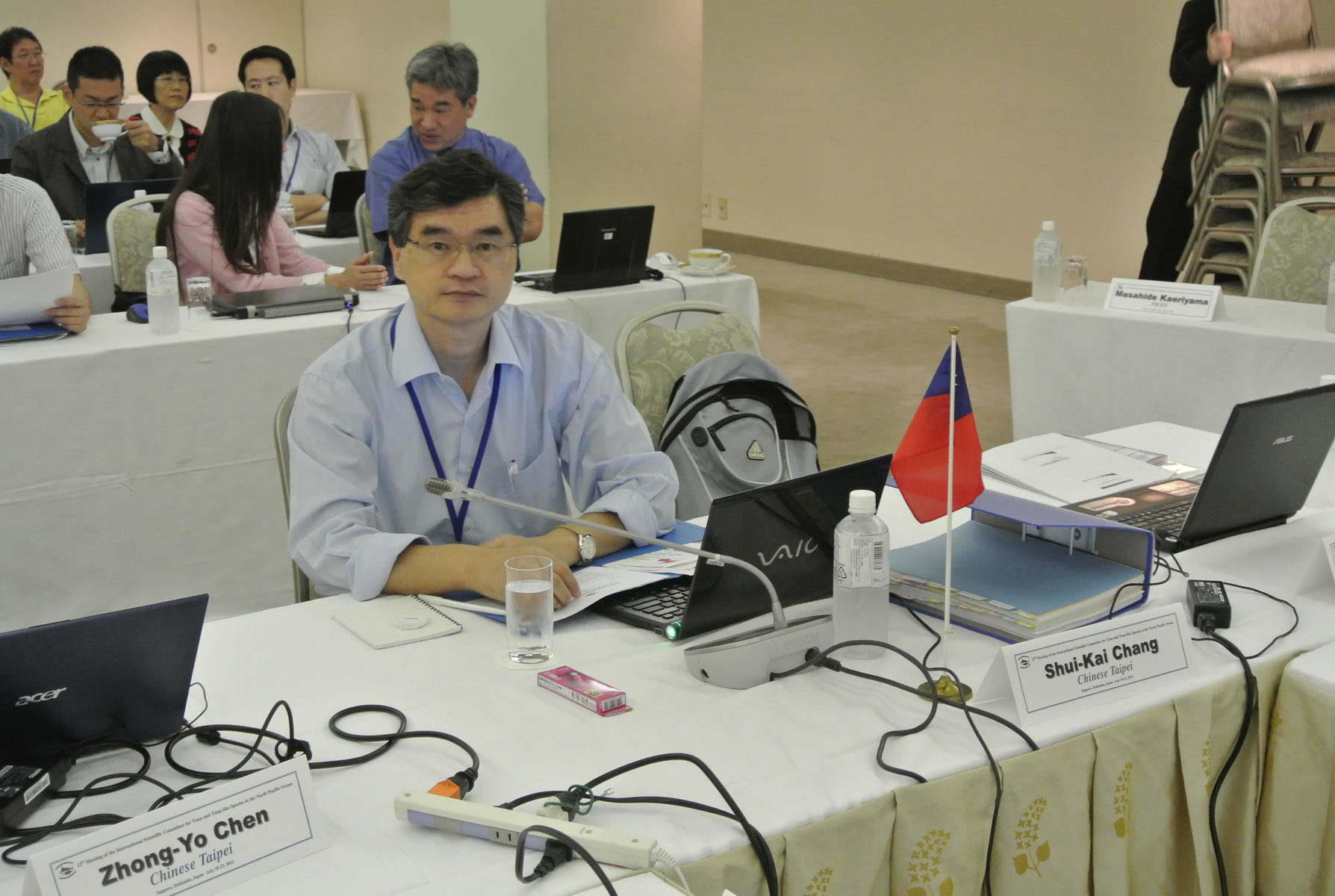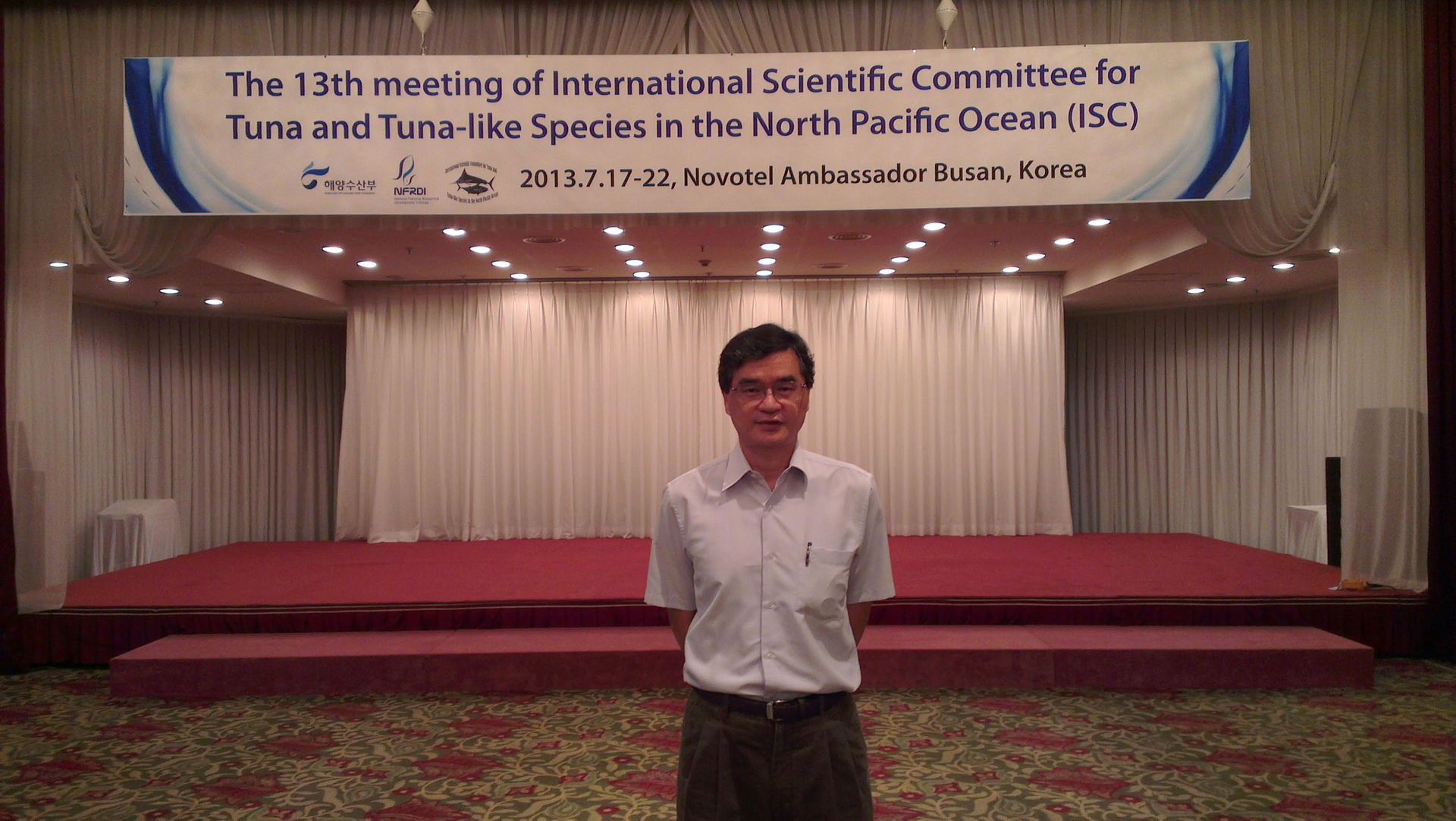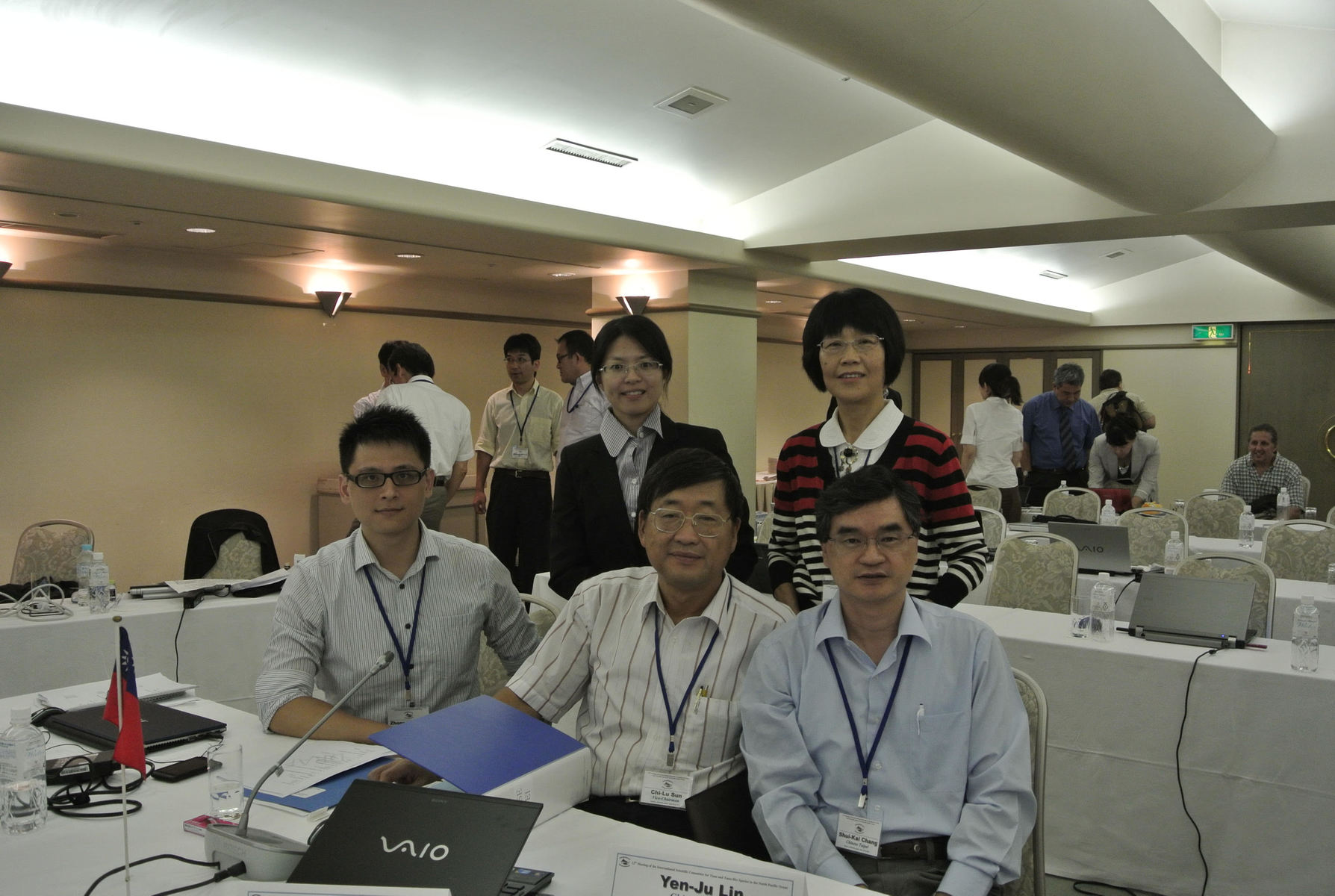Prof. Shui-Kai Chang Assumes Office as the Vice Chairman of ISC



Professor Shui-Kai (Eric) Chang of the Institute of Marine Affairs has recently elected as the vice chairman of the International Scientific Committee (ISC). Taking on new important responsibilities, Professor Chang and the new chairman are to jointly lead the ISC in completing three major tasks, namely normalizing the organization, transparentizing research, and standardizing procedures to facilitate the stable development of the organization.
The Bureau of the ISC consists of the chairman and vice chairman, under whom five working groups are found; each group possesses a group leader and deputy leader. Approximately 60 scientists from various countries participate in the ISC. The 17th meeting of the ISC was held in Vancouver, Canada from July 12–17, 2017. During the meeting, the chairman and vice chairman were elected. Professor Chang has previously been elected as a group leader twice and was the first Chinese group leader. This year, he was elected as vice chairman of the ISC for a 3-year term.
The ISC takes charge of assessing tuna, swordfish, and shark resources in the North Pacific Ocean, for which related scientific research was initiated in 1995. ISC members include major countries that fish for North Pacific tuna, swordfish, and shark (i.e., Canada, Taiwan (Chinese Taipei), Japan, South Korea, Mexico, China, and the United States), nonvoting members (i.e., the Food and Agriculture Organization of the United Nations, North Pacific Marine Science Organization, Pacific Community, and Western and Central Pacific Fisheries Commission), and the Inter-American Tropical Tuna Commission.
The ISC is one of 37 international intergovernmental organizations (or their affiliates) of which Taiwan is a member. Taiwan joined the ISC because Professor Nien-Tsu (Alfred) Hu, Director of the Center for Marine Policy Studies and the Institute of Marine Affairs at the National Sun Yat-sen University, successfully negotiated ISC guidelines at the third ISC meeting in 2002.
The fishery resources investigated by the ISC constitute approximately 150,000 tons a year and include high-value species (e.g., Toro tuna, which receives global attention). Professor Chang emphasized that the seven major ISC member countries that fish tuna in the North Pacific Ocean should form an international intergovernmental scientific organization. Data regarding fishery resources provided by the ISC serve as a reference for the Pacific Regional Fisheries Management Organization to manage fishery resources; for example, a regulation to reduce the quota of pacific juvenile Toro by 50% was introduced based on ISC research.
The Bureau of the ISC consists of the chairman and vice chairman, under whom five working groups are found; each group possesses a group leader and deputy leader. Approximately 60 scientists from various countries participate in the ISC. The 17th meeting of the ISC was held in Vancouver, Canada from July 12–17, 2017. During the meeting, the chairman and vice chairman were elected. Professor Chang has previously been elected as a group leader twice and was the first Chinese group leader. This year, he was elected as vice chairman of the ISC for a 3-year term.
The ISC takes charge of assessing tuna, swordfish, and shark resources in the North Pacific Ocean, for which related scientific research was initiated in 1995. ISC members include major countries that fish for North Pacific tuna, swordfish, and shark (i.e., Canada, Taiwan (Chinese Taipei), Japan, South Korea, Mexico, China, and the United States), nonvoting members (i.e., the Food and Agriculture Organization of the United Nations, North Pacific Marine Science Organization, Pacific Community, and Western and Central Pacific Fisheries Commission), and the Inter-American Tropical Tuna Commission.
The ISC is one of 37 international intergovernmental organizations (or their affiliates) of which Taiwan is a member. Taiwan joined the ISC because Professor Nien-Tsu (Alfred) Hu, Director of the Center for Marine Policy Studies and the Institute of Marine Affairs at the National Sun Yat-sen University, successfully negotiated ISC guidelines at the third ISC meeting in 2002.
The fishery resources investigated by the ISC constitute approximately 150,000 tons a year and include high-value species (e.g., Toro tuna, which receives global attention). Professor Chang emphasized that the seven major ISC member countries that fish tuna in the North Pacific Ocean should form an international intergovernmental scientific organization. Data regarding fishery resources provided by the ISC serve as a reference for the Pacific Regional Fisheries Management Organization to manage fishery resources; for example, a regulation to reduce the quota of pacific juvenile Toro by 50% was introduced based on ISC research.
Click Num:
Share
